Hugo! (31 page)
Authors: Bart Jones

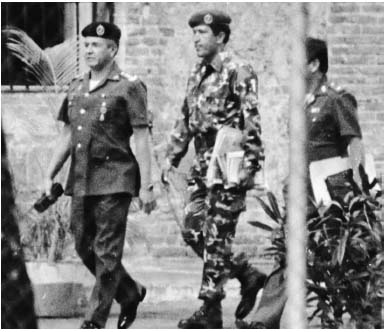
A day after the coup, photographers caught a
glimpse of military officials transferring Chávez
at the Fort Tiuna military base. Ever the voracious
reader, he carried that day's newspapers
and other material. (AP/ Wide World Photos)
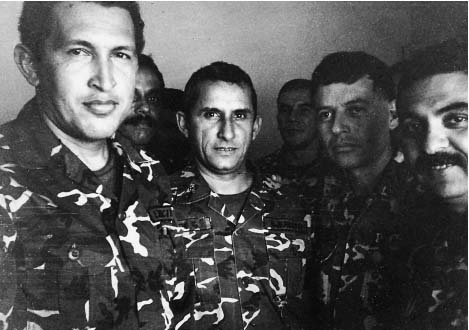
Rather than villains, Chávez, Francisco Arias
Cárdenas (second from right) and other rebels
were seen by many Venezuelans as dashing
heroes while they spent two years in prison
for launching the coup. Newspaper reporters
and photographers were able to sneak in with
their equipment and photograph the rebels in
heroic, wholesome-looking poses.
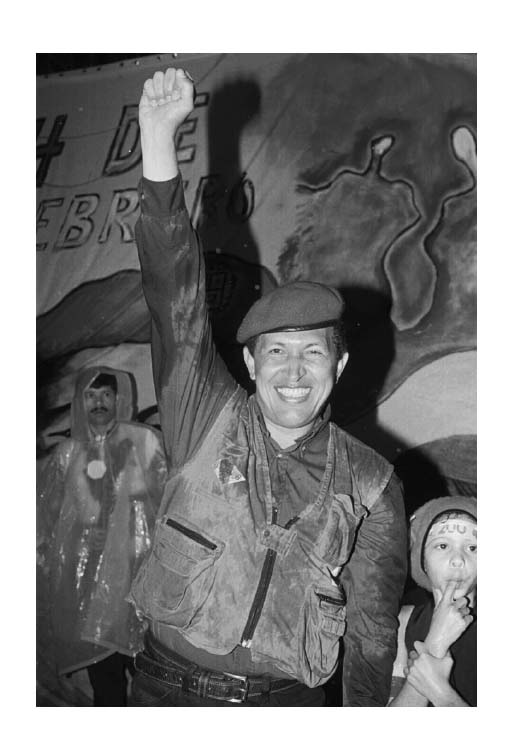
After his release from prison in 1994,
Chávez hit the road to drum up support for
his Bolivarian movement. Far from apologizing
for the coup, he celebrated it. In 1997,
while still debating whether to turn to electoral
politics in Venezuela's corruption-ridden
system, he marked the fifth anniversary of
the uprising by holding a rally in Caracas.
(AP/Wide World Photos)
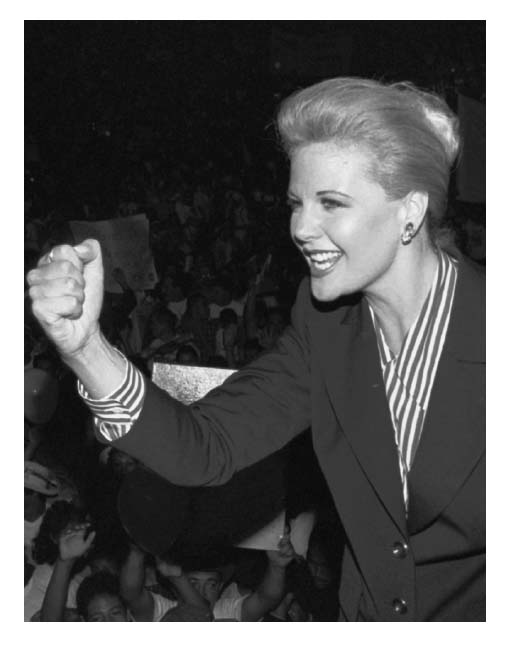
Former Miss Universe Irene Sáez, a six-foot-
one strawberry blonde who had a successful
run as mayor of an upscale section of
Caracas, was the odds-on favorite to win the
1998 presidential race — until she started
opening her mouth and gushing platitudes.
Chávez, in contrast, came soaring in from
out of nowhere — at least in the eyes of the
establishment — and catapulted to the top
of the polls with his fiery calls for revolution.
(AP/Wide World Photos)
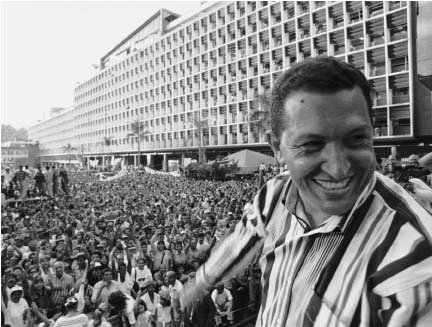
Political analysts, diplomats and pollsters didn't give Chávez a chance of winning in early 1998, but
before long he was attracting massive crowds. When he asked people at this rally to raise their hands if
they agreed with his 1992 coup attempt, a sea of hands went up. (AP/Wide World Photos)
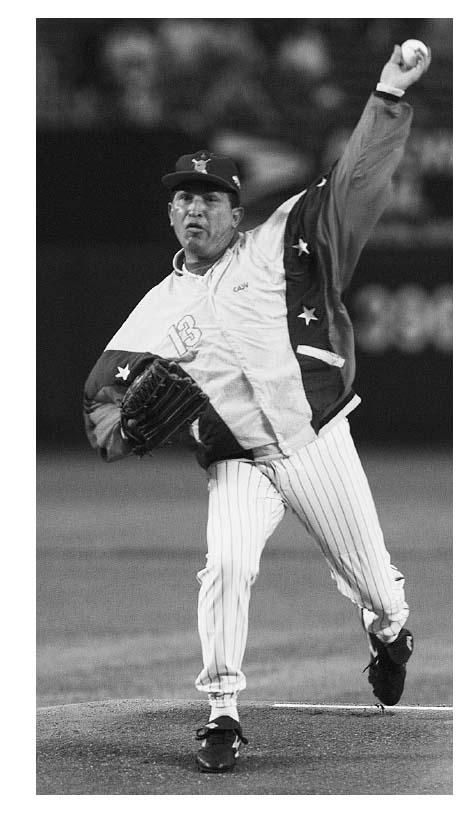
As a boy, Chávez dreamed of playing major
league baseball. He never made it, but
achieved the next best thing in 1999, when
as Venezuela's newly elected president he
threw out the first ball at a New York Mets
game at Shea Stadium. Chávez took the Big
Apple by storm, seducing Wall Street investors
and providing play-by-play commentary
for Venezuelans back home during the game.
(AP/Wide World Photos)

Ever the master of the spontaneous, unpredictable
gesture, Chávez left bodyguards and
businessmen accompanying him on a trip to
China in October 1999 breathless as he took
off jogging up the Great Wall of China. Chávez
later disarmed Vladimir Putin by dropping
into a karate stance when they first met to
show he knew the Soviet leader was a black
belt. (AP/Wide World Photos)
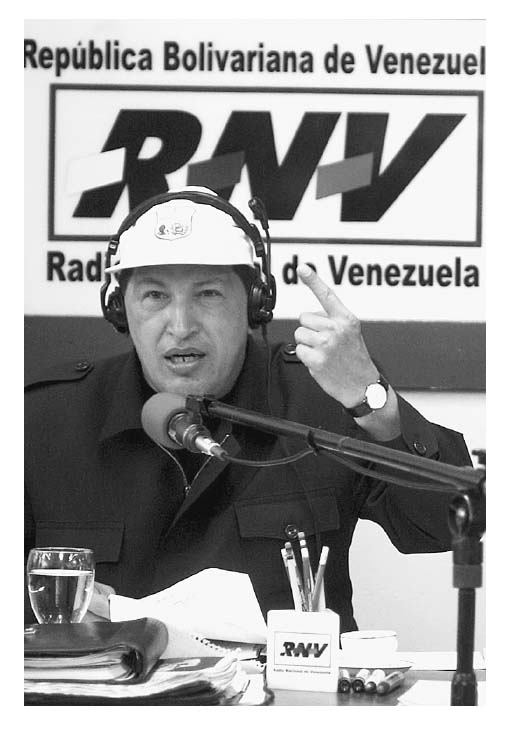
A master communicator, Chávez quickly
sought to exploit his talents by starting
his own weekly, live radio program,
Hello,
President
. Before long he expanded the
Sunday program to television, and by 2007
turned it into a two-night-a-week affair. (AP/
Wide World Photos)
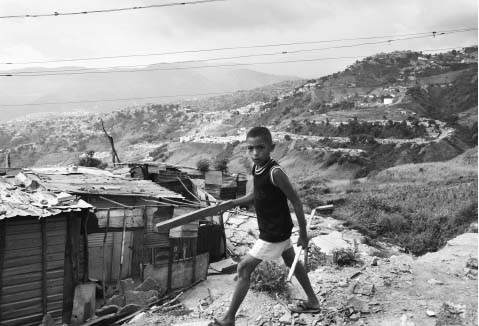
While Venezuela's upper-class despised and
mocked Chávez, the massive underclass
worshipped him. In dirt-poor barrios such
as Nueva Tacagua, where North American
Maryknoll missionaries worked and residents
lived in tin shacks, Chávez was a demigod.
People hung portraits of him on their walls
and vowed to defend him to the death. (Noah
Friedman-Rudovsky)
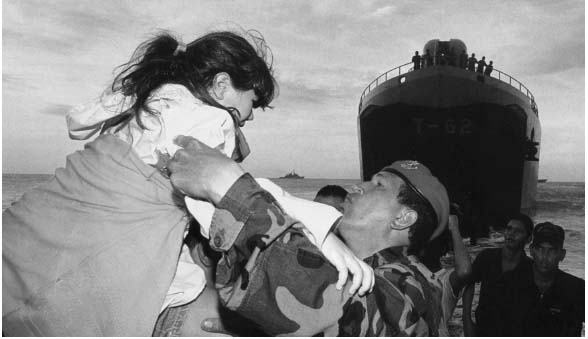
Mudslides in December 1999 on the Caribbean coast near Caracas left an estimated fifteen thousand
people dead in the worst natural disaster in Venezuela in at least a century. Yet in many ways it was one
of Chávez's finest hours as president. He took personal command of the rescue and recovery operation in
Vargas state, gave nightly updates to the mourning nation on television, and barely slept. The navy sent in
ships to pull thousands of people out of the disaster zone. (Agencia Bolivariana de Noticias)

Three days after the tragedy struck, Chávez personally gave instructions to paratroopers before they
were sent into the disaster zone. (Agencia Bolivariana de Noticias)